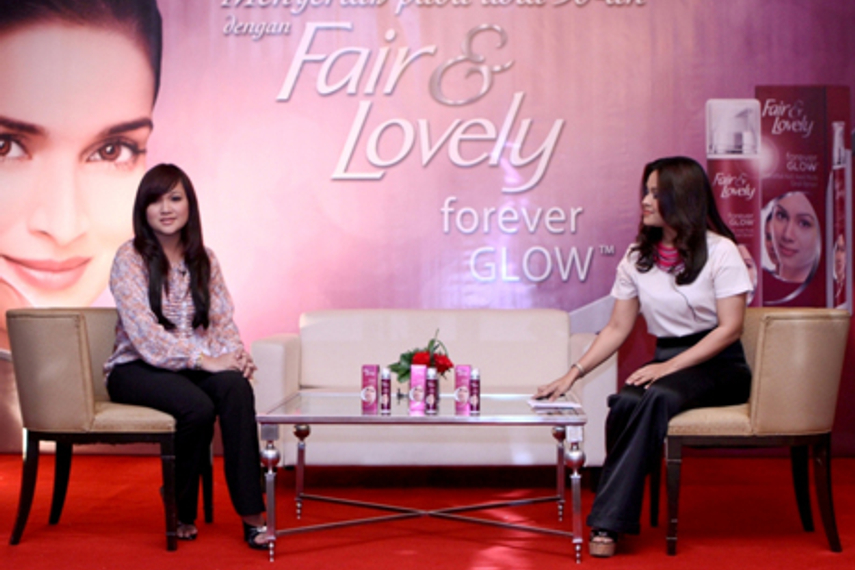
These days, the brand’s message is empowerment, selling the product as one that enables women to do achieve they want – including lightening their skin. “Fair & Lovely's brand promise is of enabling women to carve out their destinies with inner strength and confidence by providing clear fairness on the outside,” explained Unilever Malaysia’s assistant brand manager for Fair & Lovely, Sophia Wong.
The latest campaign is in conjunction with the launch of Fair & Lovely Forever Glow, a whitening moisturiser with anti-aging properties targeted at women in their thirties. Rather than run a traditional advertising campaign, the brand has opted to sponsor six episodes of a popular Malay-language women’s talk-show – Wanita Hari Ini (Today's Woman).
But it was back in 2002 that Unilever-owned affordable whitening cream Fair & Lovely ran several commercials in Malaysia that raised controversy for the implication that to be beautiful and get your man, you had to also be fair-skinned.
The commercial featured a female train attendant who failed to catch the attention of a businessman buying a ticket from her every day. Advised to use Fair & Lovely, after doing so she manages to catch her love interest's attention thanks to her new, fairer skin.
Another commercial by Fair & Lovely that ran around the same time, targeted school-going youth with a tale of a young girl attracting the attention of the boy she liked only after getting fairer by using the cream.
The controversy the ads incited among feminist groups in Malaysia was highlighted in the Wall Street Journal and Unilever Malaysia has since striven to distance itself from directly selling the concept that fairer is indeed lovelier.
And in 2003, Unilever launched the Fair & Lovely Foundation, in part to address the rising tide of criticism against the brand in Malaysia, and its’ biggest market – India, where it was first launched in 1978. Through academic scholarships, the foundation aims to ‘empower’ women to success.
Back in the present day, Unilever's Wong explained that customer research finds that fairness is no longer just about skintone but also about clarity and evenness of tone. Recent Fair & Lovely products have geared themselves to addressing other skin concerns besides whiteness, such as Fair & Lovely Anti-Marks which promises blemish-free skin.
“We decided to do this talk-show instead of a regular ad campaign because we want our brand to connect with women on an intellectual and emotional level, through engaging story-telling and discussions,” said Wong.
The concept behind the campaign is the notion that ‘Life begins at 30’ and highlights that the thirties can be the beginning of a new phase for women who are ready to leverage on their maturity and self-confidence, explained Wong. “Through the show, we can feature examples of women, in their thirties, who have succeeded in life. The talk-show format provides the perfect platform to achieve our objective of empowering women,” she added.
The sponsored talk-show mainly targets Malay and Indian female consumers in their thirties and over. It was arranged by Fair & Lovely and its media agency Mindshare Malaysia with Westcoast Communications managing public relations.



.jpg&h=334&w=500&q=100&v=20170226&c=1)

.jpg&h=334&w=500&q=100&v=20170226&c=1)

.jpg&h=334&w=500&q=100&v=20170226&c=1)






.png&h=268&w=401&q=100&v=20170226&c=1)

.jpg&h=268&w=401&q=100&v=20170226&c=1)

.jpg&h=268&w=401&q=100&v=20170226&c=1)
